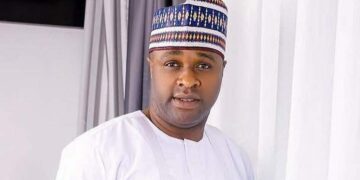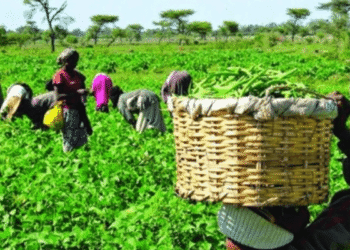
The World Bank to approve $632 million in new loans for Nigeria on the 31st of March 2025, despite rising concerns over the country’s growing debt. The funds are aimed at improving nutrition and quality basic education.
According to information on the World Bank’s website, the two loans awaiting approval are:
$80 million for the Accelerating Nutrition Results in Nigeria 2.0 initiative and $552 million for the HOPE for Quality Basic Education for All programme. Both projects are in the negotiation phase and are likely to receive final approval today.
Growing World Bank Support for Nigeria
These loans align with the World Bank’s broader strategy to aid Nigeria’s development agenda, particularly in healthcare, education, and community resilience.
This follows the March 28, 2025, approval of a $500 million loan for Nigeria’s Community Action for Resilience and Economic Stimulus Programme. This initiative aims to: Support households affected by economic downturns, strengthen community resilience, enhance food security and create economic opportunities for vulnerable populations
Despite these funding approvals, Nigeria has faced challenges in receiving funds due to fraud allegations in previous loan programs.
- In December 2021, the World Bank allocated $800 million for Nigeria’s National Social Safety-net Program Scale Up. However, only $315 million has been disbursed so far.
- The delay is linked to embezzlement allegations, leading to the suspension of Nigeria’s cash transfer program.
- Former humanitarian ministers Betta Edu and Sadiya Umar-Farouq are under EFCC investigation for allegedly mismanaging funds.
- The World Bank has also sanctioned individuals and businesses involved in fraudulent activities under the initiative.
Nigeria’s Rising Debt Profile
With these new loans, Nigeria’s total approved World Bank loans in the past three years will reach $9.25 billion. A review of World Bank loan approvals under President Bola Tinubu shows:
1. 2023: $2.7 billion approved for renewable energy, women’s empowerment, education, and power projects
2. 2024: $4.32 billion approved for various projects
3. 2025: An additional $632 million expected today
This increase highlights Nigeria’s growing reliance on multilateral loans to support economic stability.
Nigeria’s total external debt to the World Bank stands at $17.32 billion (as of Q3 2024), with:
$16.84 billion (39.14%) owed to the International Development Association (IDA)
$485.08 million (1.13%) owed to the International Bank for Reconstruction and Development (IBRD)
The country is also struggling with debt servicing, having spent $5.47 billion on external debt payments in the last 14 months, putting pressure on its foreign reserves.
While the latest loans will provide budgetary relief, concerns remain about Nigeria’s rising debt burden and its ability to manage repayments.



















